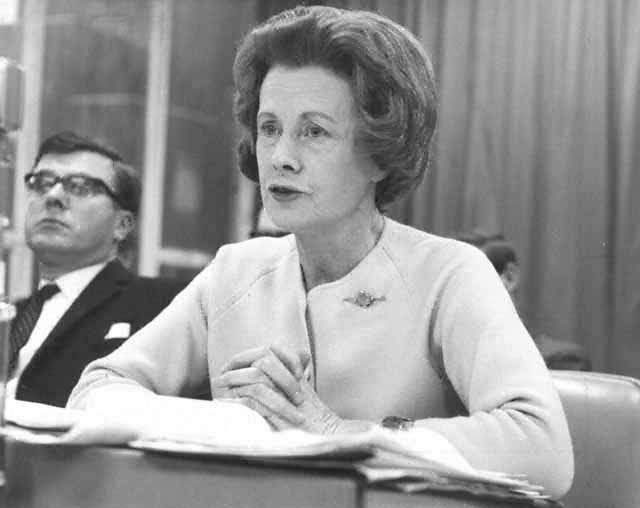The Women Who Changed the World of Work
Work. It’s where we spend so much of our lives, yet for generations, women have had to fight simply to take their rightful place in it. From being shut out of entire industries to battling for equal pay, progress has been hard-won.
But here’s the thing: women have never just waited for permission. They have challenged norms, broken barriers, and rewritten the rules. Thanks to their courage, determination, and sheer force of will, the world of work is changing for the better.
This Women’s History Month, we celebrate just a handful of the trailblazers who defied the odds and redefined what is possible. Their stories are proof that talent and tenacity can overcome even the toughest obstacles.
Barbara Castle: The Woman Who Pushed for Equal Pay
If you earn the same as a male colleague today, you have Barbara Castle to thank. As a Labour MP, she played a pivotal role in getting the Equal Pay Act of 1970 passed, spurred on by the women of Ford Dagenham, who went on strike after discovering their work was valued less than their male counterparts. Her legacy reminds us that workplace equality is not given; it is fought for.
Barbara Castle
Katherine Johnson: The Hidden Figure Who Took Us to Space
It took decades for the world to fully appreciate the genius of Katherine Johnson, a NASA mathematician whose calculations ensured the success of the Apollo moon landing. At a time when both women and African Americans were systematically excluded from STEM, she defied the odds, shaping history while others took the credit. If ever there was proof that brilliance cannot be ignored forever, it is Katherine’s story—one that finally received the recognition it deserved in Hidden Figures.
Katherine Johnson
Rosie the Riveter: More Than Just a Poster
During World War II, women stepped into roles traditionally held by men, keeping factories running and proving—without question—that they were more than capable. The now-iconic image of Rosie the Riveterwas not just a morale-boosting poster; it was a statement of strength, resilience, and a fundamental shift in how society viewed women’s work. While many were pushed out of these jobs after the war, the door to workplace equality had been nudged open, never to be fully closed again.
Rosie the Riveter
Dame Stephanie Shirley: The Woman Who Hacked the Tech Industry
In the 1960s, tech was not a space where women were welcomed, so Dame Stephanie Shirley carved out her own. She founded a software company, employed an almost entirely female workforce, and championed flexible working long before it became mainstream. To get a foot in the door, she signed her business letters as “Steve,” a small act of defiance that helped reshape the industry.
Dame Stephanie Shirley
Indra Nooyi: Redefining Corporate Leadership
Boardrooms are still far from equal, but Indra Nooyi’s tenure as CEO of PepsiCo proved beyond doubt that women can lead some of the world’s biggest companies—and do it with vision, purpose, and heart. She championed sustainability, diversity, and work-life balance long before they were corporate buzzwords, showing that great leadership is not just about the bottom line; it is about shaping a workplace that works for everyone.
Indra Nooyi
Jean Purdy: The Forgotten Pioneer of IVF
Most people have heard of the first test-tube baby. Fewer know the name Jean Purdy, the fertility nurse and embryologist who played a pivotal role in making in vitro fertilisation (IVF) a reality. Despite being instrumental in developing the procedure that has since helped millions of families, she was largely overlooked in her time. Her story is a stark reminder of how often women’s contributions are sidelined—and why we must keep telling them.
Jean Purdy
Dame Minouche Shafik: Redefining Economic Leadership
A powerhouse in academia and economics, Dame Minouche Shafik became the first woman to lead The London School of Economics before heading across the Atlantic to become President of Columbia University. She has spent years championing workplace policies that better support women and caregivers, arguing that economic success and social equality must go hand in hand. A woman with a vision and the power to make it happen.
Dame Minouche Shafik
The Work Isn’t Over
These women, and so many others, changed the world of work. But let’s be honest: there is still a long way to go. The gender pay gap remains stubbornly wide, women are still underrepresented in leadership, and the policies that should support working women—from parental leave to menopause support—are too often an afterthought.
Let’s celebrate the progress these women made, and at the same time, keep pushing for more.


